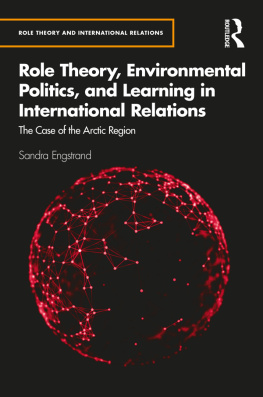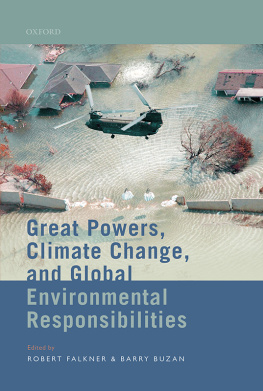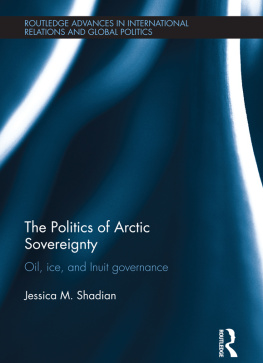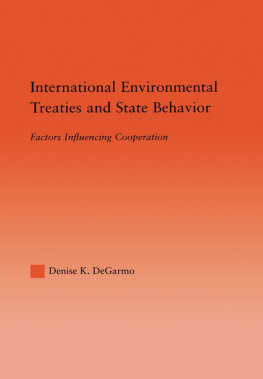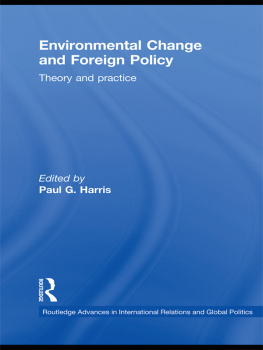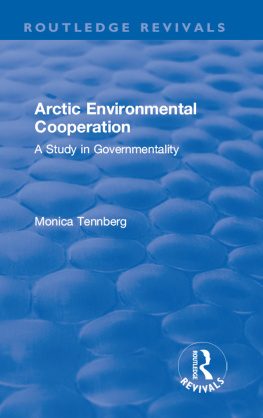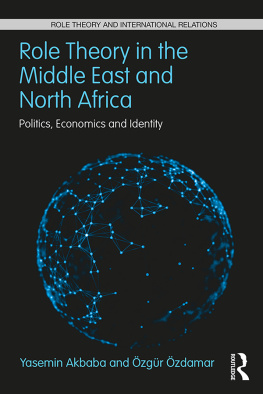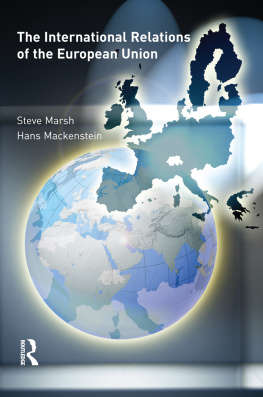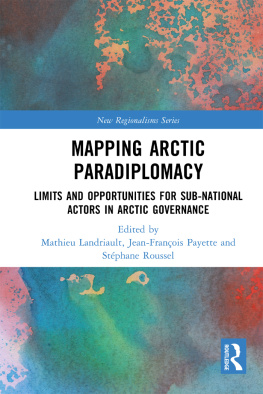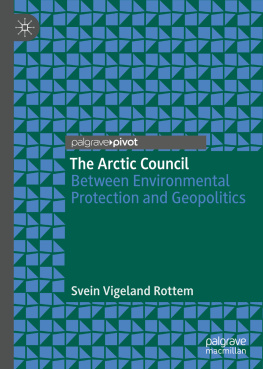One of the great strengths of this book is its rigorous and empirically rich account of Arctic cooperation from a role theoretical perspective. Sandra Engstrands analysis brings together in-depth knowledge of Arctic state interaction, environmental and resource politics as well as foreign policy learning theory, thereby offering an excellent starting point to explain future cooperation and non-cooperation in this vital region.
Sebastian Harnisch, Professor of Political Science, Heidelberg University
Sandra Engstrand offers a refreshing view on Arctic relations, by identifying how Arctic states learn and play their roles. It is an important and awaited contribution to the Arctic governance literature. A must read for everyone interested in how states understand the Arctic.
Svein Vigeland Rottem, Senior Research Fellow, Fridtjof Nansen Institute
No serious scholar of environmental politics or international relations would deny that climate change in the polar regions has become a matter of urgent concern. If our present habits must change, then states must learn to embrace new behavioral norms. Sandra Engstrand uses role theory to give us new insight into the unfolding drama of Arctic Council negotiations, and new hope about the prospects for learning even as the geopolitics of environmental cooperation has become more fraught than ever.
Paul Kowert, Associate Professor, University of Massachusetts
Role Theory, Environmental Politics, and Learning in International Relations
In this book, Sandra Engstrand uses role theory to study learning processes in environmental policy negotiations in the Arctic Council.
Owing to rapid ice-melting in the Arctic region, and more accessible commercial opportunities, there is a greater need for environmental protection. However, large sections of the Arctic fall under state jurisdiction, often causing tensions to arise that prevent any cooperation from achieving fully efficient environmental protection. To enhance our understanding on how states learn about environmental norms, Engstrand examines negotiation processes on environmental protection for the prevention of Arctic marine oil spills and the reduction of short-lived climate pollutants. Through interviews with state representatives and through text analyses of nearly twenty years of meetings between Senior Arctic Officials from each of the eight Arctic states, Engstrand suggests that learning on environmental norms runs firstly through a learning of roles in international relations. She demonstrates how member states develop through self-reflection and by considering the expectation of others, concluding that states wishes to preserve their social role in a group and to be perceived as Arctic cooperators are drivers for a social education on environmental norms.
A timely and unmatched volume Role Theory, Environmental Politics, and Learning in International Relations will engage students and academic researchers in international relations, environmental governance, and Arctic politics.
Sandra Engstrand has a PhD in Political Science from Lund University. She has been teaching courses in International Relations at the Department of Global Political Studies at Malm University, Sweden.
Role Theory and International Relations
Edited by Cameron G. Thies, Arizona State University, and Juliet Kaarbo, University of Edinburgh
The Role Theory and International Relations Series aspires to attract and publish the latest and best research integrating knowledge in the field of International Relations with role theory. This aspiration cuts across a wide swath of subfields, including foreign policy analysis, peace and security studies, international political economy, diplomatic studies, and international organization. While each of these subfields of study is presently organized as an island of theory, this series intends to integrate their signature phenomena within a system of knowledge, a theory complex, or an alliance among different subfields. This series showcases the ability of role theory to generate useful theoretical insights on its own or in combination with existing theories across these traditional subfields. Role theorys conceptual repertoire, its ability to span multiple levels of analyses, and the major meta-theoretical divides in the discipline position it to be an important integrative force in the study of international relations.
Rethinking Foreign Policy Analysis
States, Leaders, and the Microfoundations of Behavioral International Relations
Edited by Stephen G. Walker, Akan Malici, and Mark Schafer
The United States, Israel, and the Search for International Order
Socializing States
Cameron G. Thies
Role Theory and the Cognitive Architecture of British Appeasement Decisions
Symbolic and Strategic Interaction in World Politics
Stephen G. Walker
Environmental Politics and Foreign Policy Decision Making in Latin America
Ratifying the Kyoto Protocol
Amy Below
Chinas International Roles
Edited by Sebastian Harnisch, Sebastian Bersick, Jrn-Carsten Gottwald
Domestic Role Contestation, Foreign Policy, and International Relations
Edited by Cristian Cantir and Juliet Kaarbo
Role Theory and Role Conflict in U.S.-Iran Relations:
Enemies of Our Own Making
Akan Malici and Stephen G. Walker
South Korean Identity and Global Foreign Policy
Dream of Autonomy
Patrick Flamm
Role Theory in the Middle East and North Africa
Politics, Economics and Identity
Yasemin Akbaba and zgr zdamar
A Theory of Master Role Transition
Small Powers Shaping Regional Hegemons
Feliciano de S Guimares
US Global leadership and Domestic Polarization
A Role Theory Approach
Gordon M. Friedrichs
Role Theory, Environmental Politics, and Learning in International Relations
The Case of the Arctic Region
Sandra Engstrand
Role Theory, Environmental Politics, and Learning in International Relations
The Case of the Arctic Region
Sandra Engstrand
First published 2022
by Routledge
605 Third Avenue, New York, NY 10158
and by Routledge
2 Park Square, Milton Park, Abingdon, Oxon OX14 4RN
Routledge is an imprint of the Taylor & Francis Group, an informa business
2022 Taylor & Francis
The right of Sandra Engstrand to be identified as author of this work has been asserted by her in accordance with sections 77 and 78 of the Copyright, Designs and Patents Act 1988.
All rights reserved. No part of this book may be reprinted or reproduced or utilised in any form or by any electronic, mechanical, or other means, now known or hereafter invented, including photocopying and recording, or in any information storage or retrieval system, without permission in writing from the publishers.
Trademark notice: Product or corporate names may be trademarks or registered trademarks, and are used only for identification and explanation without intent to infringe.
Library of Congress Cataloging-in-Publication Data
A catalog record for this title has been requested
ISBN: 978-0-367-35138-0 (hbk)

